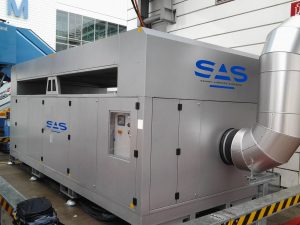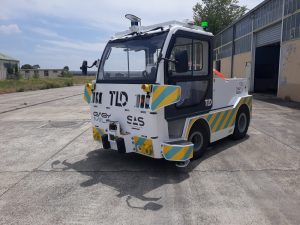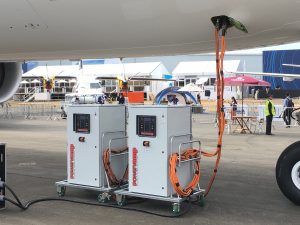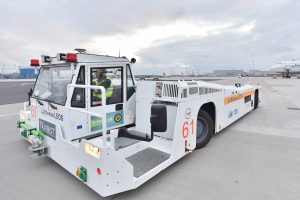Smart Airport Systems
Solutions for Sustainable Aviation
Smart Airport Systems (SAS), an Alvest Group Company, strives for excellence in its mission to provide sustainable solutions for aviation. Its three major objectives are the generation of fuel savings to Airlines, the reduction of noise and polluting emissions and operational efficiency at Airports.
SAS innovative products, incorporate the latest unique technologies in the aviation industry, enabling Airlines and Airports to improve their operational efficiencies, whilst paving the way for a greener future.
Company Profile
-
PCA
Lebrun integrates its industrial refrigeration expertise gained over the past 140 years to create unique, cost-effective, reliable, and powerful air-conditioning units by providing a real alternative to the on-ground use of the auxiliary power unit (APU).
Its range of stationary air conditioning units is designed to replace the aircraft’s APU and maintain the correct temperature in the cockpit and cabin during pre-flight operations, boarding and maintenance.
This unique range of products meets the needs and requirements of all narrow- and wide-bodied civil aircrafts types in continental, tropical and desert climates.
Limiting the use of APU with adequate air conditioning units will result in substantial fuel savings and lower maintenance costs for the airline companies. In an environmental perspective, Lebrun focused on limiting emissions of direct pollutants on the ground and decreasing significantly the noise disturbance for the operators and airport.
Ad-hoc solutions in stationary pre-conditioned air unit (PCA) are offered analyzing and optimizing the project conditions. Lebrun’s team of experts proposes unique solutions depending on the climate, electricity and water availabilities. The four options coupled with high standard PCA Air delivery systems are:
- Direct expansion – point of use unit
- Glycoled water – centralized unit
- Chilled water – semi-centralized hybrid unit
- Chilled water – semi-centralized hybrid subfreezing unit
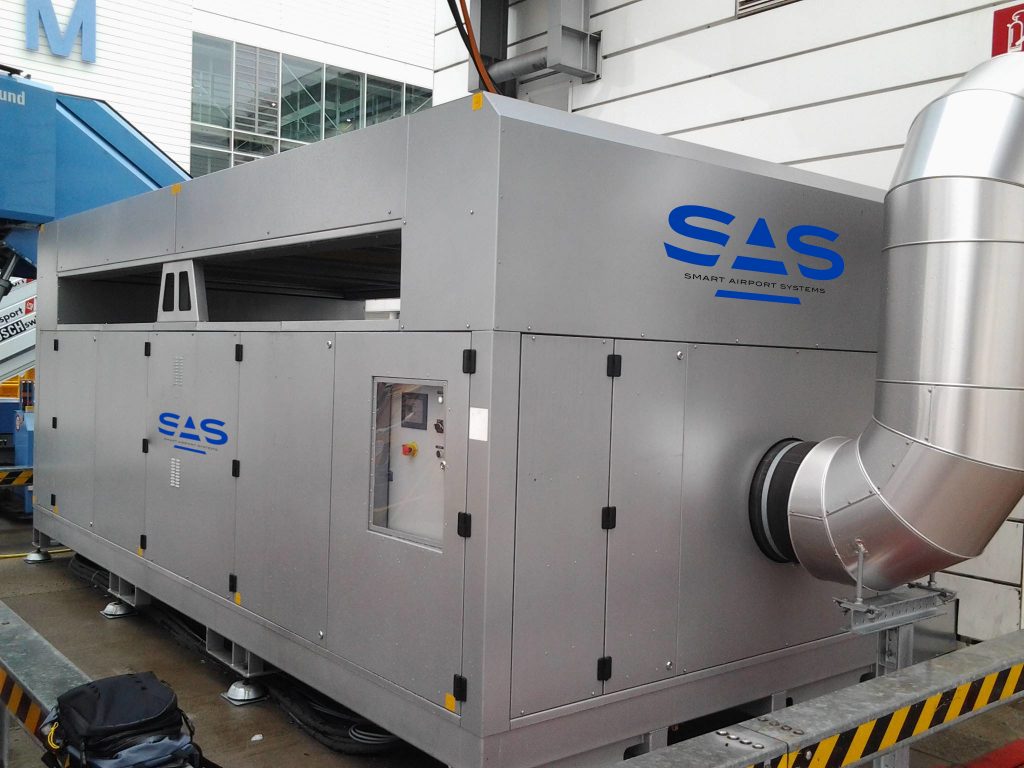
-
TractEasy
Joining experiences together, cooperation between TLD and EASYMILE gave birth to the TractEasy®, the first Autonomous Electric Baggage Tractor for airport and industrial operation.
Founded in 2014, EasyMile is one of the leading companies that specialises in autonomous vehicle technology. TractEasy® is capable of driving indoor and outdoor without the need for extra infrastructure change.
TractEasy® is a driverless tow-tractor that not only facilitates a significant increase in productivity, efficiency, labour and maintenance savings but also allows enhanced safety and process compliances.
The TractEasy® mission is to move cargo in an autonomous manner, under the supervision of dedicated fleet manager software, from terminal to terminal, or terminal to aircraft.
TractEasy® relies upon multiple sensors, (lidars, radars, IMU, GPS, wheel encoders, 3G/4G modem, V2X on-board units, and stereo cameras), that are integrated with the EasyMile driverless software to read and navigate the surrounding environment.
TractEasy® does not require any infrastructure change, yet utilises its technologies to collect, store, and analyze data in the following areas to ensure the vehicle can operate safely:
- Localization: knowing where the vehicle is with an accuracy of at least 5 centimeters.
- Navigation: knowing where the vehicle is headed on a predefined route. Using V2X technology, the vehicle is able to receive information from its environment and interact with it. The vehicle is also able to receive missions from the supervision center.
- Perception/Obstacle Detection: knowing what is happening around the vehicle and able to adjust its behavior accordingly.
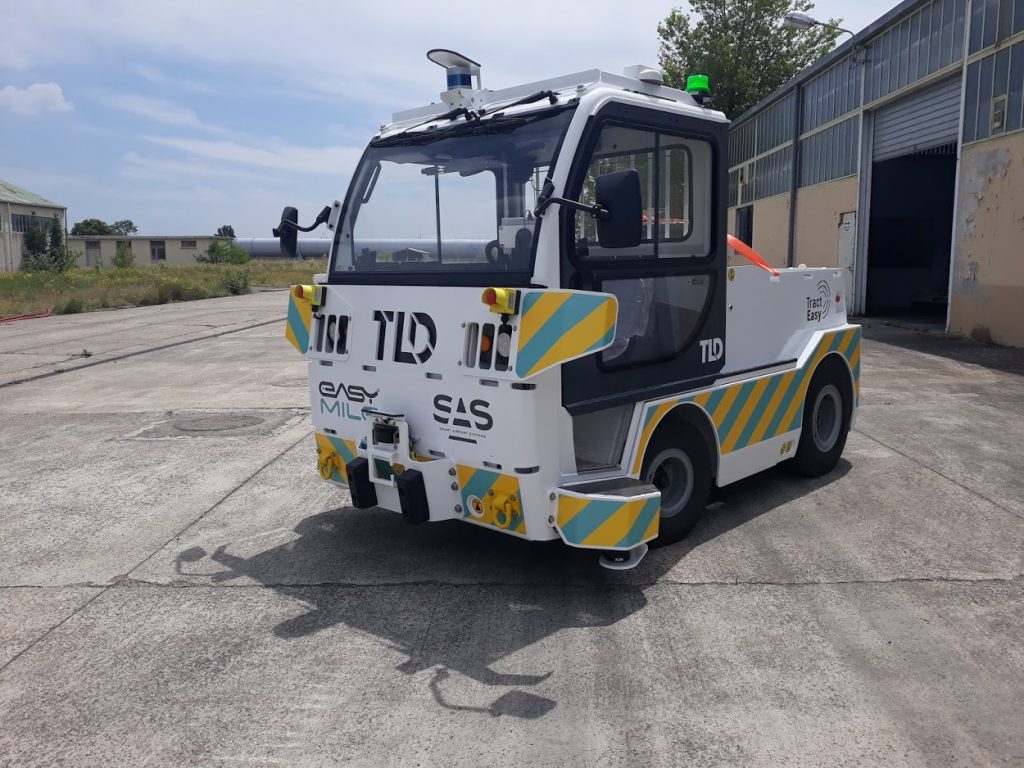
-
400Hz
The Powervamp PV90-3 is a third generation mobile electrical ground power (MEGP) unit designed specifically to meet the sensitive power requirements of today’s modern aircraft.
The PV90-3 uses a 12-pulse rectifier to provide improved input harmonics and power factor without compromising quality or reliability.
With all power stage components housed in a unique single pull-out module, downtime and fault finding are no longer a problem. In the pressured front line operating environment of airports, the PV90-3 is a converter that does not require the support of trained technicians.
The latest aircraft with electric air-conditioning packs and electric start can demand 90kW from a 90kVA FEGP installation. The use of on-board air-con can also require large power loads for extended time periods.
The Powervamp PV90-3 converter is designed to meet this demand by providing the ground power to run the electrical systems of all next generation aircraft.Continuously delivering a genuine 90kW, (significantly more than the 90kVA – 72kW which is the generally quoted power), requires the generous sizing of electrical and electronic components and the ability to dissipate the heat generated at continuous full load.
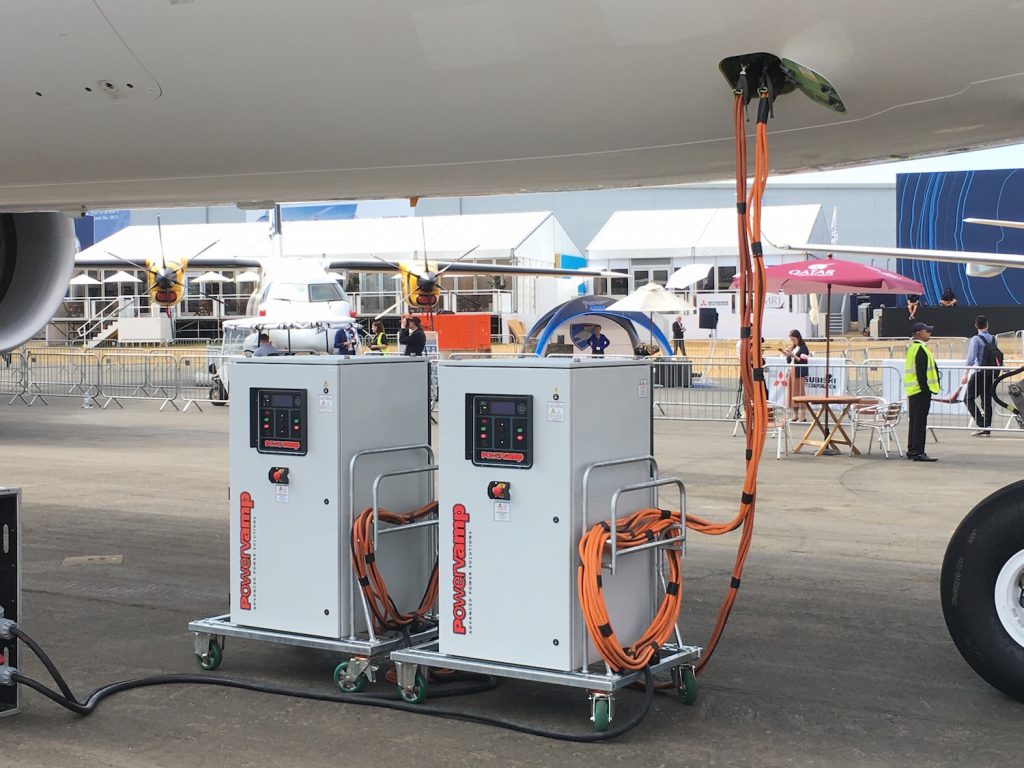
-
TaxiBot
After years of engineering development, the semi-robotic dispatch towing vehicle is now a reality.
The TaxiBot®, (Taxiing Robot), is a unique proven solution – certified and ready to bring both ecological and economical ground operation savings to airlines and airports.
The TaxiBot® is a semi-robotic hybrid towing vehicle designed for taxiing airplanes from the boarding gate to the takeoff runway without the use of jet engine power.
The use of the TaxiBot® vehicle will have a significantly positive impact on the environment and airline expenditure:
- Up to 85% reduction of fuel consumption during taxi.
- Up to 85% reduction of CO2 and other noxious emission during taxi.
- 60% reduction in noise pollution.
- 50% reduction of FOD per takeoff.
- Improves gate efficiency through the reduction of wasted time during engine start-up at the gate area, which not only affects the gate used, but also the nearest airplanes to the gates.
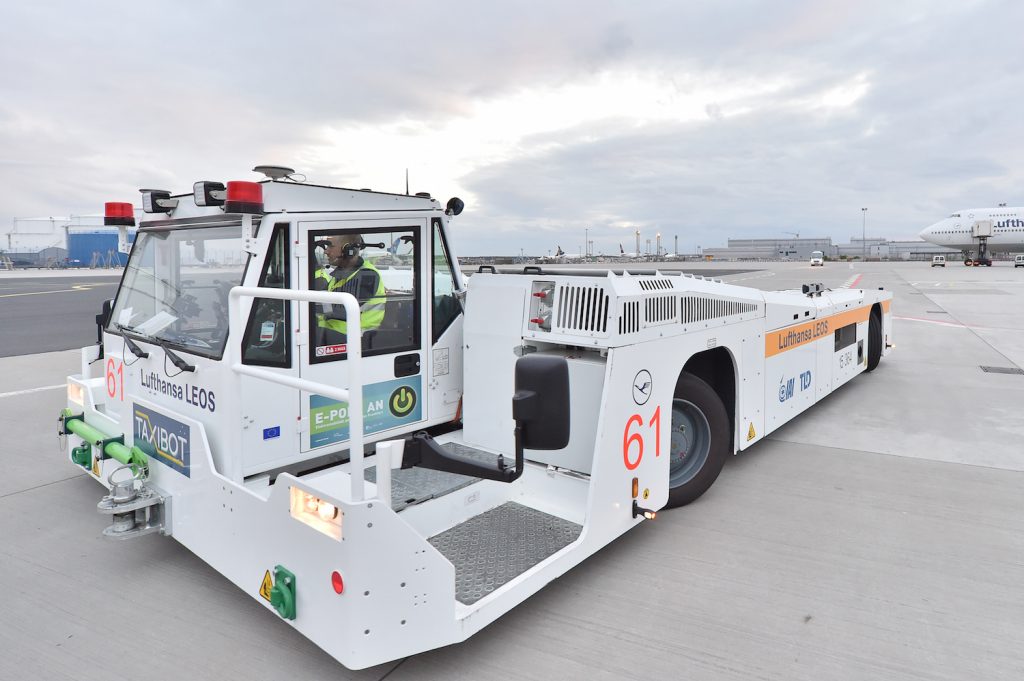
Products
Pre-conditioned Air unit, diesel engine driven and pure electric drive Mobile type, fixed type, bridge mounted
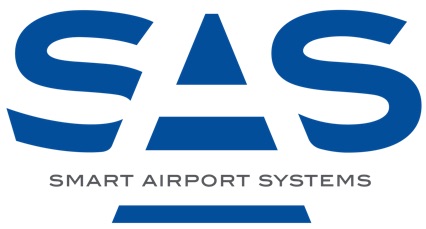
TractEasy

Images
Contact
104, boulevard du Montparnasse
F-75682 Paris Cedex 14
France
- +33 1 40 64 16 10
